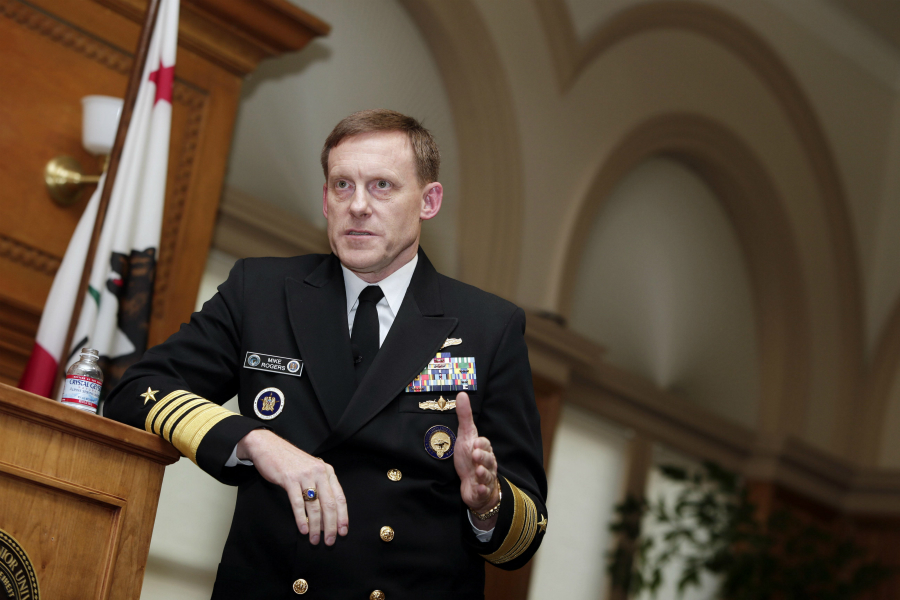
Advertisement
(Cyberwar.news) The head of the National Security Agency said that software “encryption is foundational to the future” in arguing against creating backdoors that government could access in comments to the Atlantic Council last week.
Adm. Mike Rogers also told the Washington, D.C.-based think tank that future cyber security battles will actually require additional encryption, not less, The Intercept reported.
“What you saw at OPM, you’re going to see a whole lot more of,” he said, a reference to the massive hack of the Office of Personnel Management, in which data involving more than 21 million current and former government employees was compromised.
“So spending time arguing about, ‘Hey, encryption is bad and we ought to do away with it’ … that’s a waste of time to me,” he said.
“So what we’ve got to ask ourselves is, with that foundation, what’s the best way for us to deal with it? And how do we meet those very legitimate concerns from multiple perspectives?”
Some analysts have argued that the NSA has managed to break encryption before and likely retains the ability to do so.
But Rogers’ stance is at odds with other federal law enforcement and intelligence officials, most notable among them FBI Director James Comey, who as called for backdoors into encrypted software that can be accessed during investigations into terrorism and other high crimes.
In December Comey told the Senate Judiciary Committee that the FBI could not decode a flurry of encrypted messages sent by a terrorist gunman who attacked an exhibit of caricatures of the Muslim Prophet Muhammad in Garland, Texas, to an overseas contact.

As reported by Reuters, Comey told the committee that one of the attackers “exchanged 109 messages with an overseas terrorist” the morning of the shooting.
“We have no idea what he said because those messages were encrypted,” Comey said. “And to this day, I can’t tell you what he said with that terrorist 109 times the morning of that attack. That is a big problem. We have to grapple with it.”
That said, several experts believe that creating backdoors in encryption technology would actually make the software less secure overall because eventually they would be discovered and exploited by hackers.
For his part, Rogers told the Atlantic Council that both security and privacy are important.
“Concerns about privacy have never been higher. Trying to get all those things right, to realize that — it isn’t about one or the other,” he said, adding he doesn’t believe that “security is the imperative and that ought to drive everything.”
Neither should privacy, however. “We’ve got to meet these two imperatives. We’ve got some challenging times ahead of us, folks.”
After failing to convince Congress and the White House to pursue backdoor access into encryption technology, Comey has since changed tactics. Now he is advocating for private media/technology companies to reconsider “their business model” and simply stop offering encryption.
Former NSA Director Air Force Gen. Michael Hayden is on the side of his successor.
“I disagree with Jim Comey. I actually think end-to-end encryption is good for America,” he has said recently.
See also:
Cyberwar.news is part of the USA Features Media network of sites. For advertising opportunities, click here.
Submit a correction >>
This article may contain statements that reflect the opinion of the author
Advertisement
Advertisements















